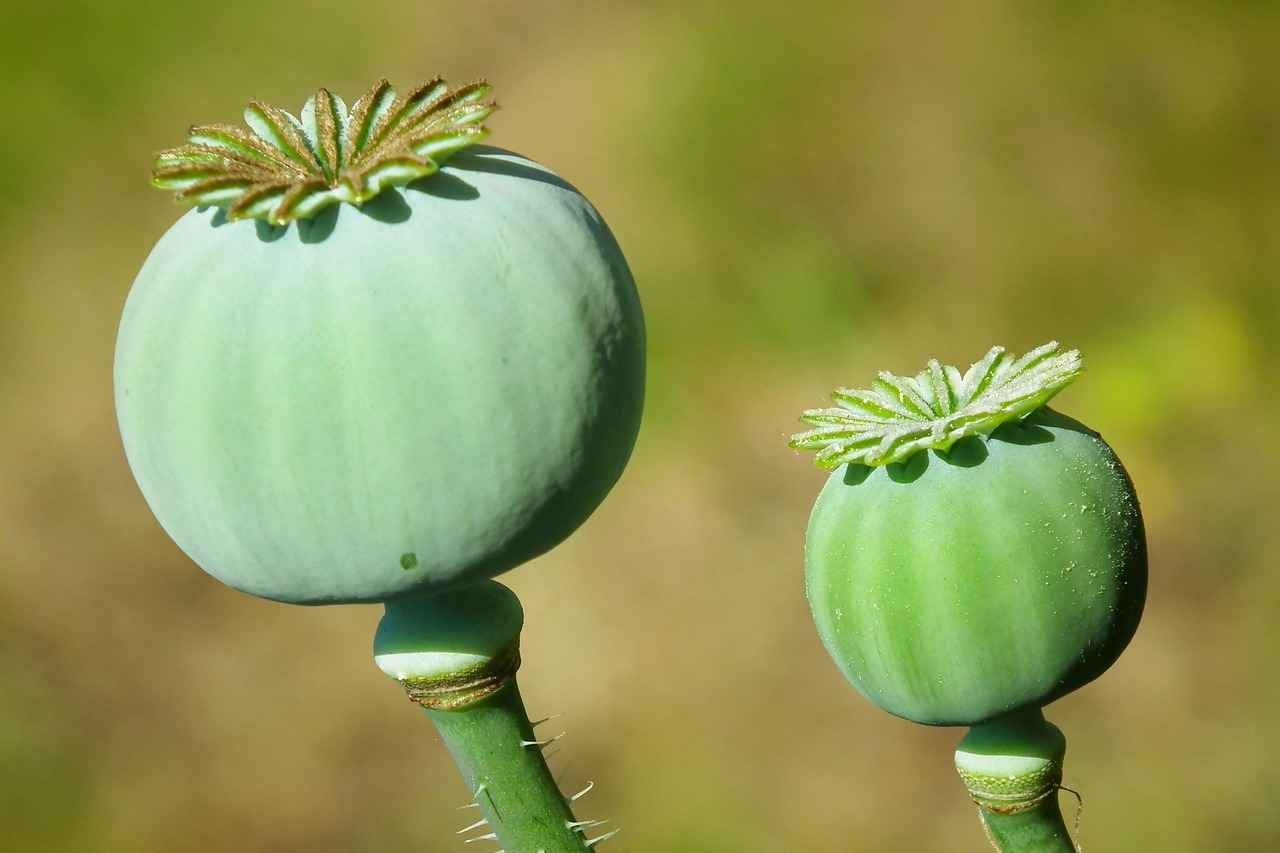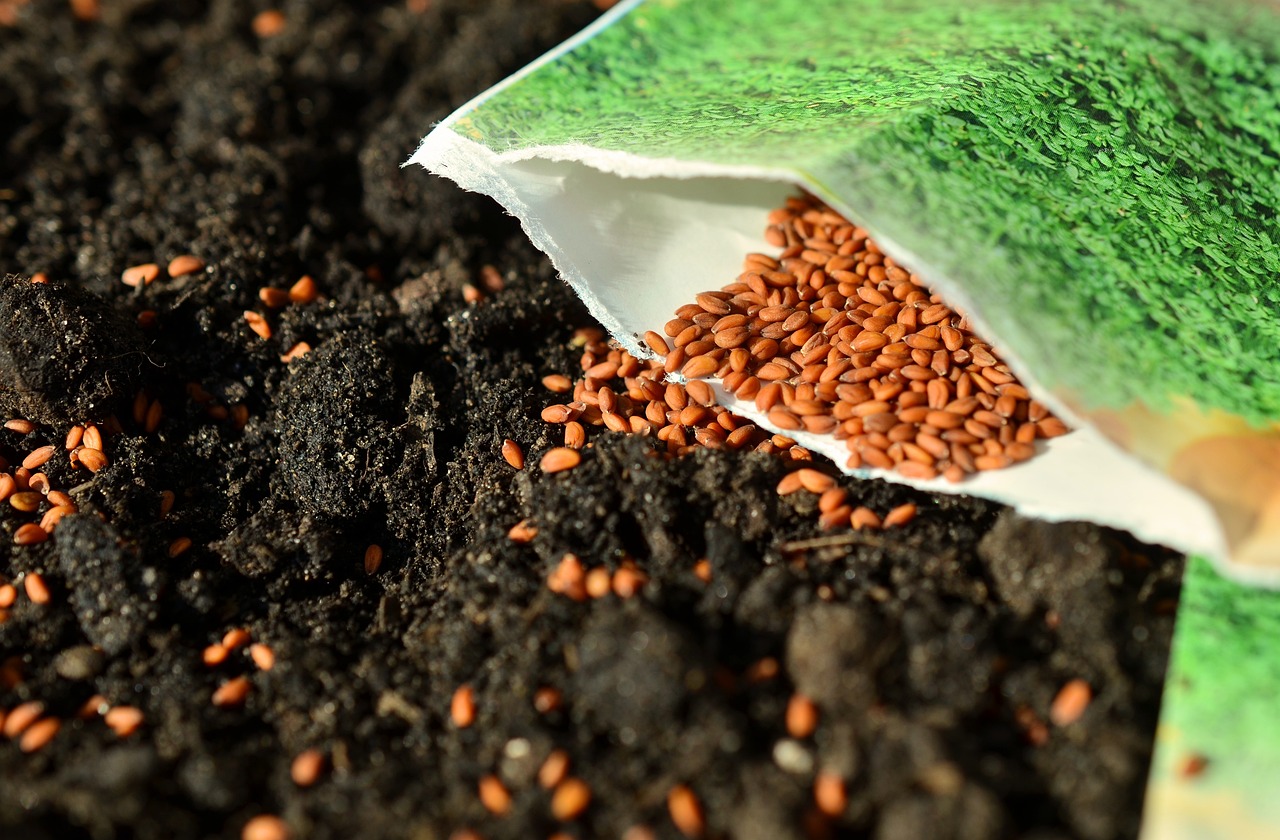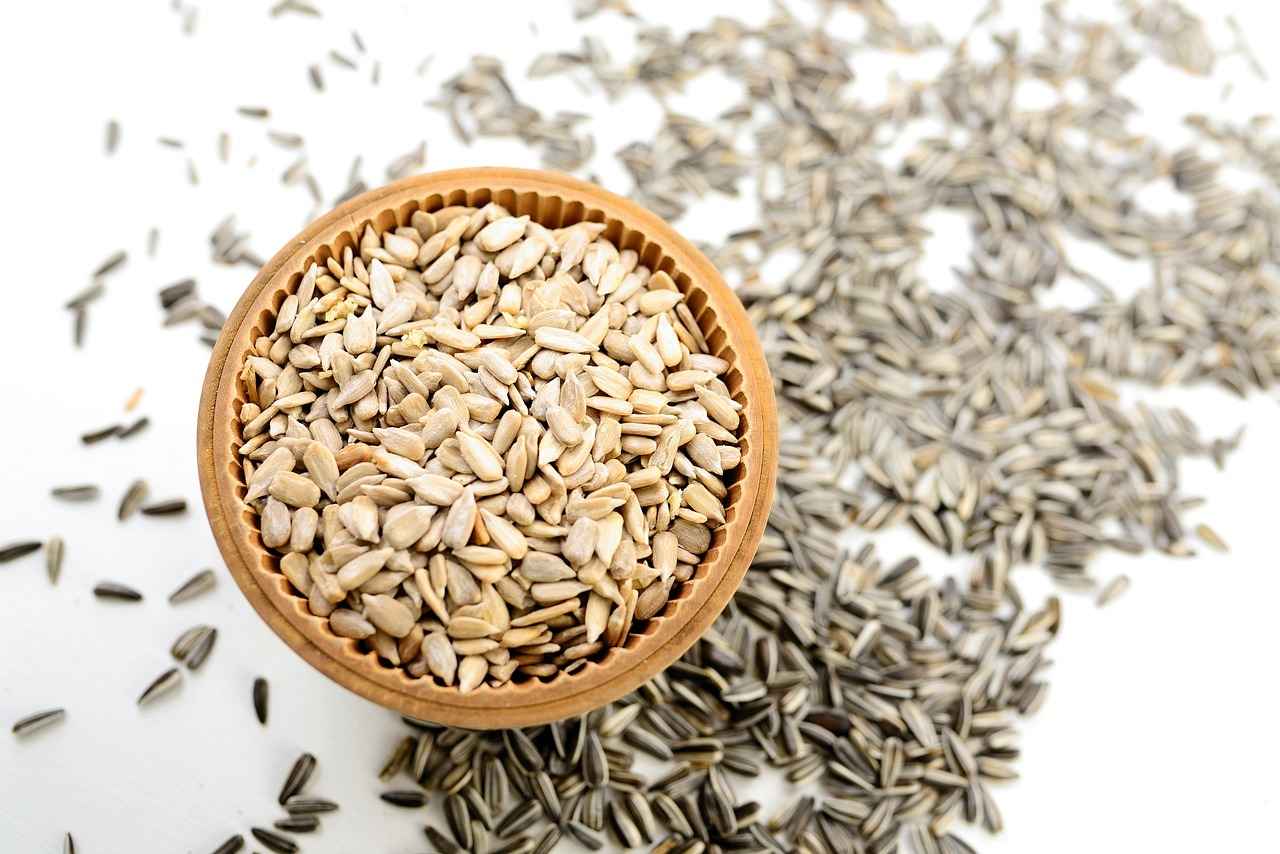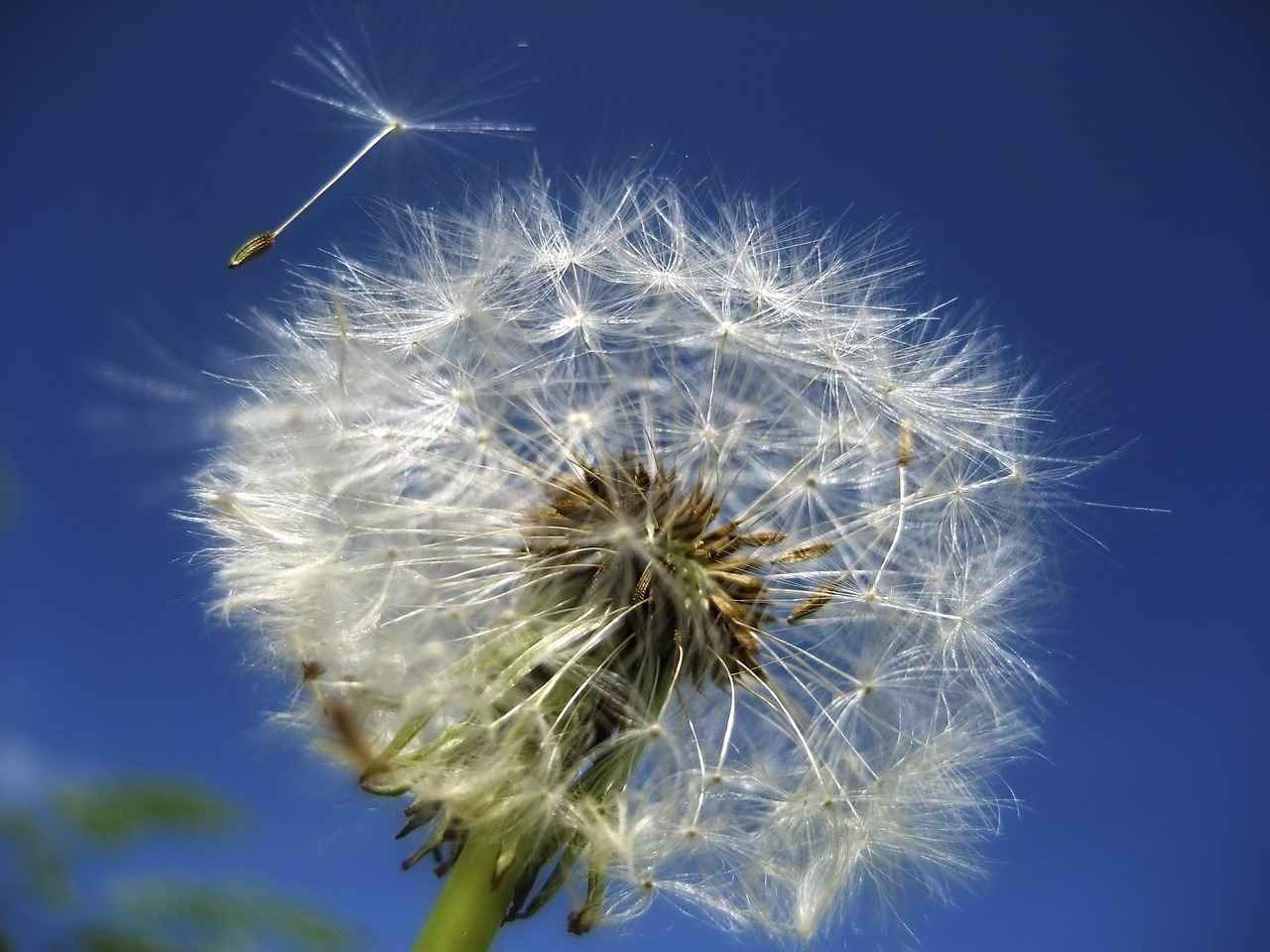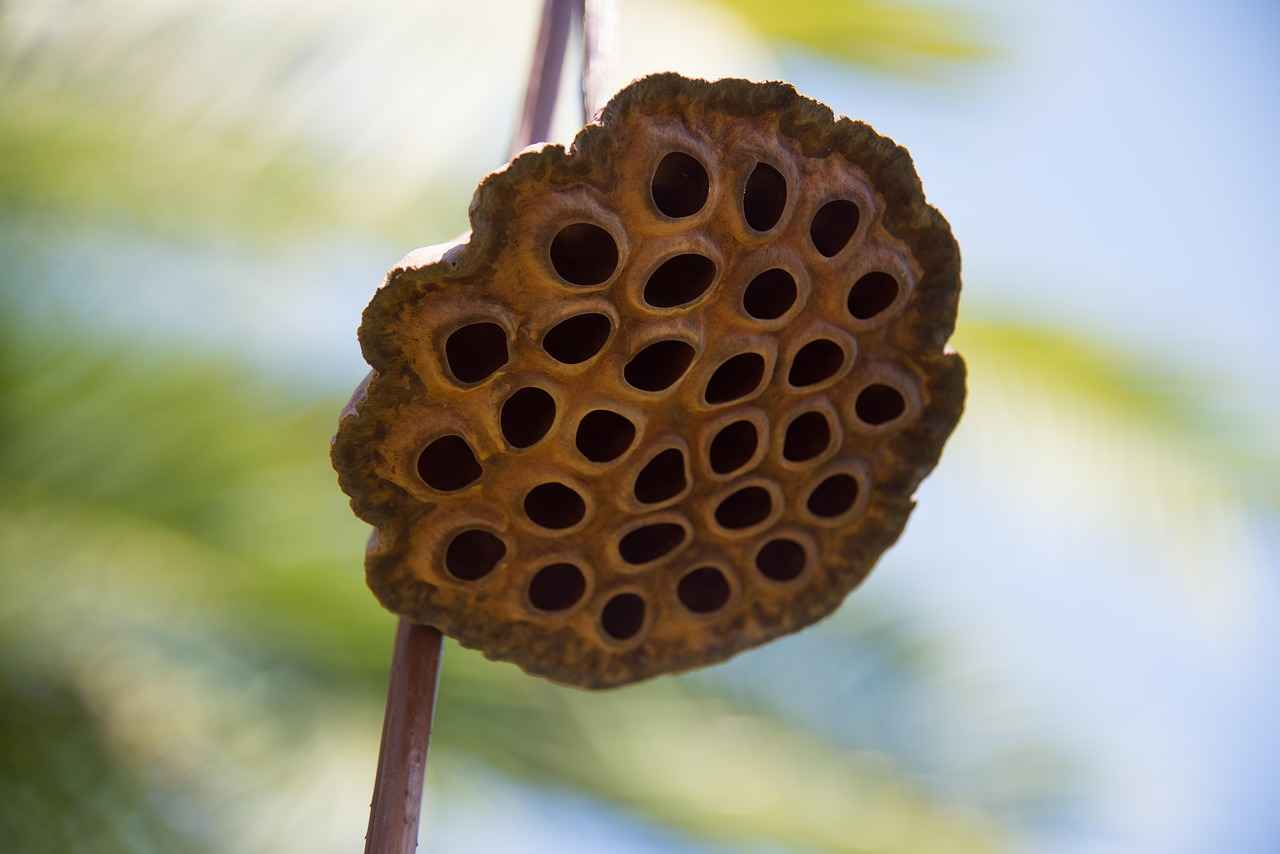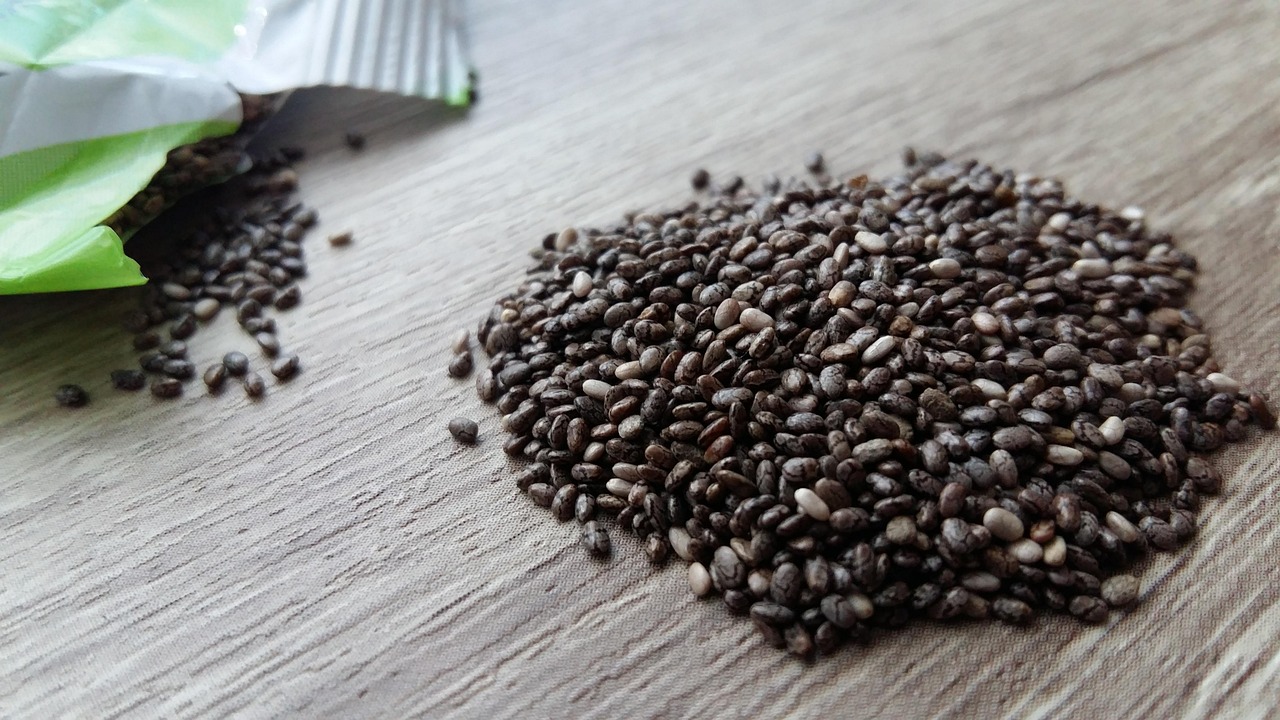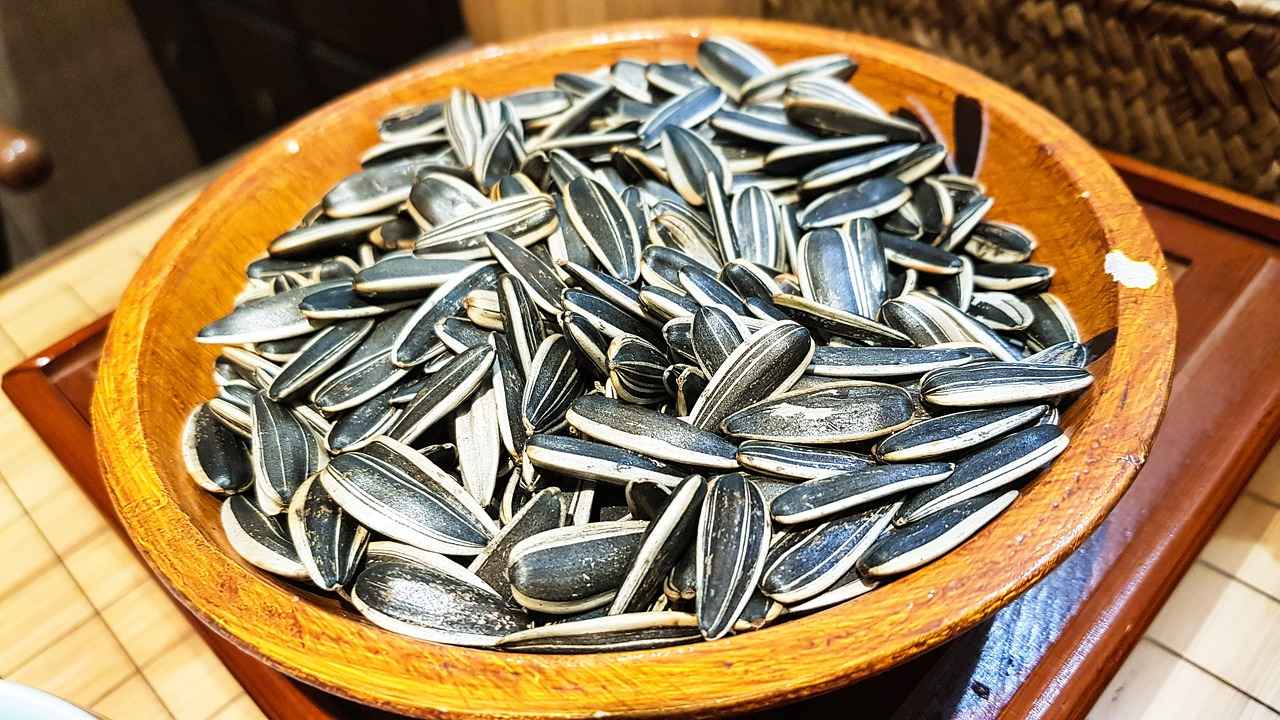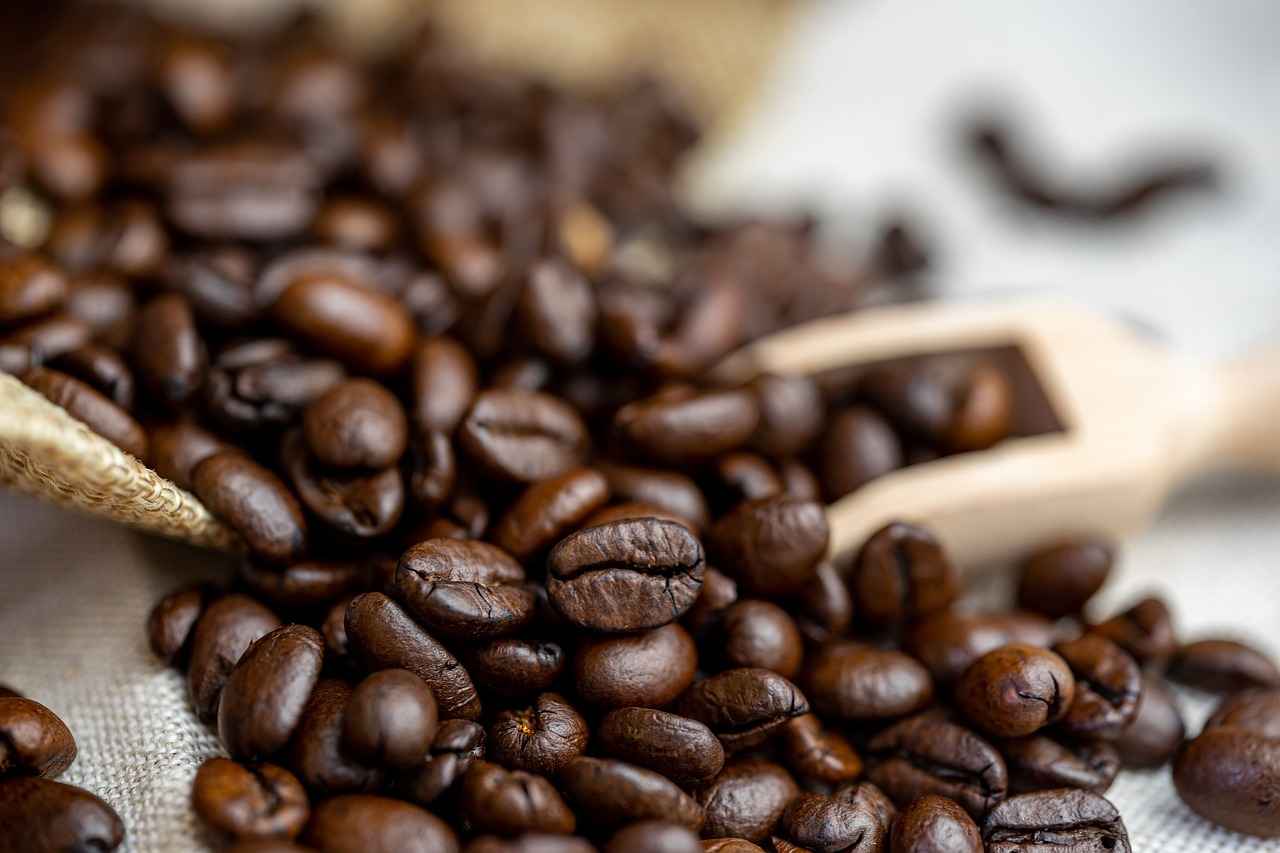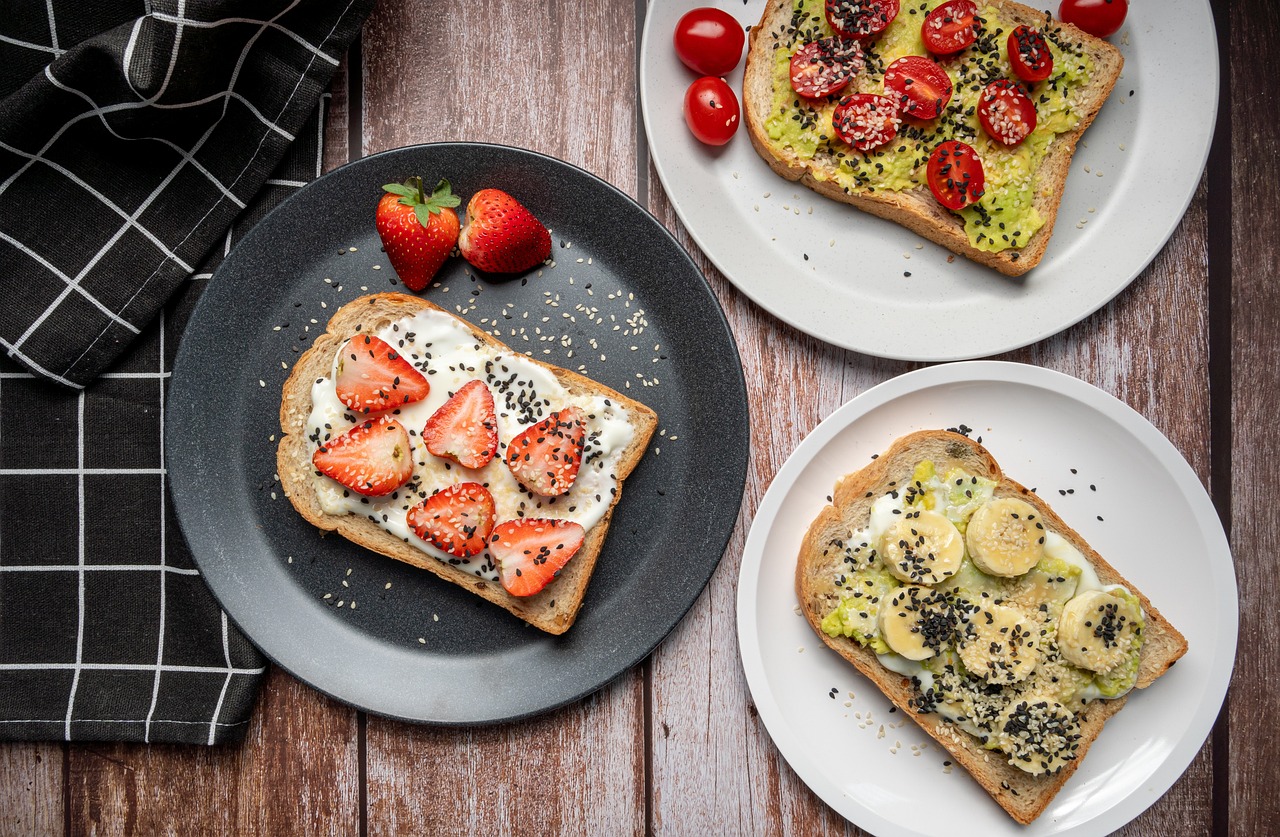This article explores the benefits, uses, and purchasing considerations of chia seeds available at Costco, providing a thorough analysis for consumers interested in enhancing their diets.
What Are Chia Seeds?
Chia seeds are small, nutrient-rich seeds sourced from the Salvia hispanica plant, native to Mexico and Guatemala. These tiny powerhouses are celebrated for their numerous health benefits and versatility in various culinary applications. Rich in omega-3 fatty acids, fiber, and protein, chia seeds have gained popularity among health-conscious consumers.
Why Choose Costco for Chia Seeds?
Costco is known for its bulk purchasing options, making it an attractive choice for buying chia seeds. Here are some reasons to consider:
- Cost Savings: Buying in bulk often leads to significant savings compared to purchasing smaller packages from other retailers.
- Quality Assurance: Costco is known for its high-quality products, and its chia seeds are no exception.
- Convenience: With both in-store and online purchasing options, obtaining chia seeds from Costco is straightforward.
Health Benefits of Chia Seeds
Chia seeds are touted for their health benefits, which include:
- Rich in Nutrients: A single ounce of chia seeds contains 11 grams of fiber, 4 grams of protein, and a healthy dose of omega-3 fatty acids.
- Antioxidant Properties: They are loaded with antioxidants that help combat oxidative stress in the body.
How Do Chia Seeds Support Digestive Health?
The high fiber content in chia seeds promotes digestive health by aiding in regularity. The soluble fiber absorbs water, forming a gel-like substance that helps move food through the digestive tract.
Can Chia Seeds Help with Weight Management?
Chia seeds may assist in weight loss by promoting a feeling of fullness, which can reduce overall calorie intake. They expand in the stomach, which may help curb hunger.
How to Incorporate Chia Seeds into Your Diet?
Incorporating chia seeds into your daily meals is easy and delicious. Here are some practical tips:
- Add them to smoothies for a nutrient boost.
- Sprinkle them on salads for added crunch.
- Mix them into baked goods for enhanced nutrition.
What Are Some Simple Chia Seed Recipes?
Here are a couple of easy recipes to try:
Chia Pudding:- 1 cup almond milk- 1/4 cup chia seeds- Sweetener to tasteMix ingredients and refrigerate overnight.Energy Bars:- 1 cup oats- 1/2 cup nut butter- 1/4 cup honey- 1/4 cup chia seedsMix and press into a pan. Chill and cut into bars.
Can Chia Seeds Be Used in Baking?
Chia seeds can enhance the texture and nutrition of baked goods. They can be used as a binding agent or as a substitute for eggs in vegan recipes.
Potential Drawbacks of Chia Seeds
While chia seeds offer numerous benefits, some individuals may experience digestive discomfort. It’s essential to introduce them gradually into your diet.
Are There Any Allergies Associated with Chia Seeds?
Chia seeds are generally safe; however, some people may experience allergic reactions. Symptoms can include skin rashes or gastrointestinal issues.
How to Store Chia Seeds Properly?
To maintain freshness, store chia seeds in a cool, dry place, preferably in an airtight container. Proper storage can prolong their shelf life.
Where to Buy Costco Chia Seeds?
Costco’s chia seeds are available both in-store and online, making them accessible to a wide range of consumers. Always check for the best quality and packaging date before purchasing.
Final Thoughts on Costco Chia Seeds
Chia seeds from Costco offer a convenient and cost-effective way to enhance your diet. With their numerous health benefits and versatile uses, they are a worthy addition to any health-conscious individual’s pantry.
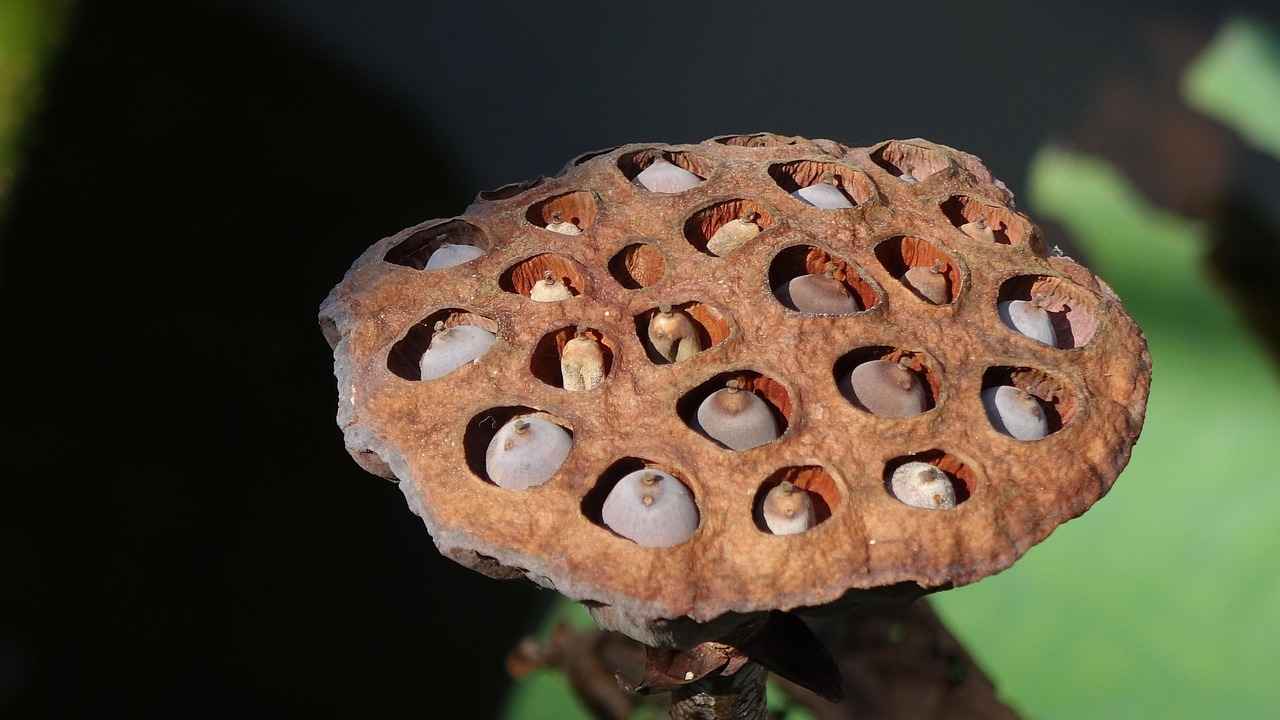
What Are Chia Seeds?
Chia seeds, originating from the Salvia hispanica plant, are tiny, black or white seeds that have gained immense popularity in recent years due to their impressive nutritional profile and versatility. These nutrient-dense seeds are not only a powerhouse of essential nutrients but also serve as a valuable addition to various culinary creations.
Rich in Nutrients: Chia seeds are loaded with important nutrients, including omega-3 fatty acids, fiber, protein, and various vitamins and minerals. Just a single ounce (28 grams) of chia seeds provides approximately:
- 11 grams of fiber
- 4 grams of protein
- 5 grams of omega-3 fatty acids
- 18% of the daily recommended intake of calcium
This remarkable nutrient density makes chia seeds an excellent choice for those looking to boost their overall health and well-being.
Versatility in Recipes: One of the standout features of chia seeds is their versatility. They can be easily incorporated into a variety of dishes, ranging from smoothies and salads to baked goods and desserts. When soaked in liquid, chia seeds expand and form a gel-like consistency, making them ideal for creating chia pudding or as a thickening agent in recipes.
Historical Significance: Chia seeds have a long history, dating back to ancient civilizations in Central and South America, where they were a staple food for the Aztecs and Mayans. They were valued not only for their nutritional benefits but also for their ability to provide sustained energy during long journeys and battles.
Health Benefits: Numerous studies have highlighted the health benefits of chia seeds. Their high fiber content aids in digestion and helps maintain a healthy gut. Additionally, the omega-3 fatty acids found in chia seeds have been linked to improved heart health and reduced inflammation.
Furthermore, chia seeds can support weight management by promoting a feeling of fullness, which can help prevent overeating. With their ability to absorb liquid and expand in the stomach, they provide a satisfying addition to meals.
Incorporating chia seeds into your diet can be a simple and delicious way to enhance your nutritional intake. Whether you sprinkle them on top of yogurt, blend them into smoothies, or use them in baking, chia seeds offer a myriad of possibilities for health-conscious consumers.
Overall, understanding the origins and benefits of chia seeds can help consumers appreciate their value as a nutrient-rich food source. With their rich history, impressive nutritional profile, and culinary versatility, chia seeds are truly a remarkable addition to any diet.
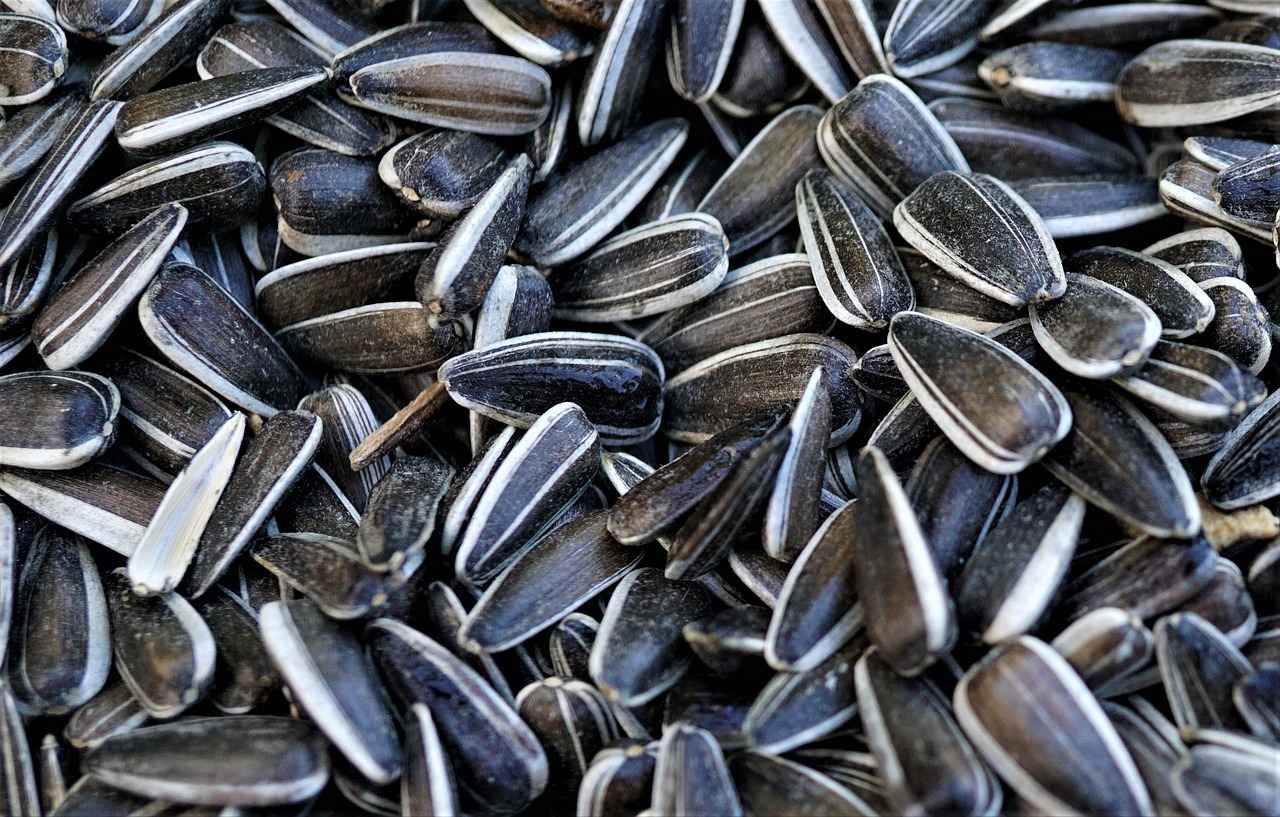
Why Choose Costco for Chia Seeds?
When it comes to purchasing chia seeds, Costco stands out as a popular choice for many health-conscious consumers. This section explores the reasons why buying chia seeds from Costco can be a smart decision, highlighting the benefits of bulk purchasing, product quality, and competitive pricing.
One of the primary advantages of shopping at Costco is the opportunity to buy chia seeds in bulk. This not only provides significant savings compared to smaller packages found at regular grocery stores but also ensures that you have a steady supply on hand. For those who regularly incorporate chia seeds into their diets, buying in bulk can lead to reduced costs over time.
Costco is known for its commitment to quality, and their chia seeds are no exception. They typically source their products from reputable suppliers, ensuring that consumers receive premium quality seeds. This is particularly important for health-focused individuals who prioritize nutrient density and freshness in their food choices.
When comparing prices, Costco often provides some of the most competitive rates in the market. For instance, a standard package of chia seeds at Costco may contain a larger quantity at a lower price per ounce than that of local health food stores or online retailers. This price advantage can be a significant factor for budget-conscious shoppers.
While a Costco membership is required to make purchases, the benefits can outweigh the initial cost. Members not only gain access to bulk products but also enjoy exclusive deals and discounts on various items, including organic and non-GMO chia seeds. This can enhance the overall shopping experience, making it worthwhile for regular buyers.
Costco stores are widespread, making it easy for consumers to find chia seeds both in-store and online. The convenience of shopping at a location that offers a variety of other health foods and organic products further enhances the appeal of purchasing chia seeds from Costco. Additionally, the option to order online and have products delivered adds another layer of convenience for busy individuals.
Another point to consider is the feedback from customers. Many shoppers report high levels of satisfaction with their purchases of chia seeds from Costco, often praising the quality and freshness of the products. Positive reviews can be a strong indicator of a product’s reliability and effectiveness, reinforcing the idea that Costco is a trustworthy source for health-related foods.
In summary, choosing Costco for your chia seed purchases offers numerous advantages, including bulk savings, high-quality products, and competitive pricing. For those looking to enhance their diets with nutrient-rich chia seeds, Costco provides a convenient and economical option that is hard to beat.
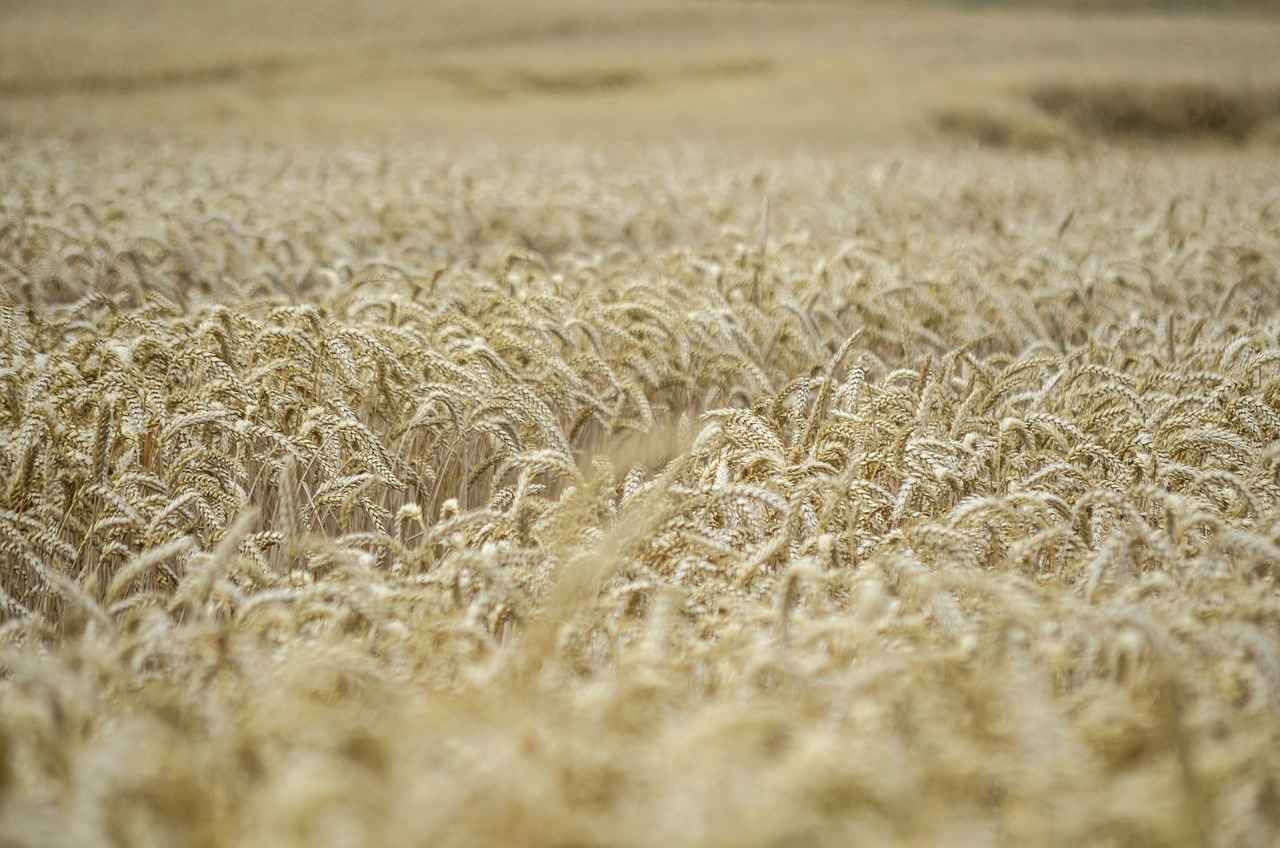
Health Benefits of Chia Seeds
Chia seeds, derived from the Salvia hispanica plant, have gained immense popularity in recent years due to their impressive nutritional profile. These tiny seeds are not only rich in essential nutrients but also offer a myriad of health benefits that make them a valuable addition to any diet. This section delves into the numerous health benefits of chia seeds, supported by scientific studies and expert opinions.
Chia seeds are an excellent source of:
- Omega-3 Fatty Acids: These essential fats are crucial for heart health and brain function.
- Dietary Fiber: Chia seeds contain a high amount of fiber, which aids in digestion and promotes a feeling of fullness.
- Protein: They provide a plant-based protein source, making them ideal for vegetarians and vegans.
- Minerals: Chia seeds are rich in calcium, magnesium, and phosphorus, all essential for bone health.
The high fiber content in chia seeds plays a vital role in promoting digestive health. When consumed, chia seeds absorb water and expand, forming a gel-like substance. This gel-like consistency helps to regulate bowel movements and can prevent constipation. According to a study published in the Journal of Nutrition, the soluble fiber in chia seeds acts as a natural laxative, enhancing gut health and overall digestive function.
Chia seeds may also assist in weight management. Their ability to absorb liquid and expand in the stomach promotes a feeling of fullness, which can help reduce overall calorie intake. A study in the Nutrition Journal found that participants who included chia seeds in their diet reported reduced appetite and increased satiety. This makes chia seeds a great addition to weight loss strategies.
Rich in omega-3 fatty acids, chia seeds are known for their heart health benefits. Omega-3s are essential for reducing inflammation and lowering cholesterol levels. Research has shown that regular consumption of chia seeds can lead to improved cardiovascular health, making them a heart-healthy choice.
In addition to heart health, chia seeds possess potent anti-inflammatory properties. The antioxidants present in chia seeds help combat oxidative stress, which is linked to various chronic diseases. A study in the American Journal of Clinical Nutrition highlighted the role of chia seeds in reducing inflammation markers in the body.
Incorporating chia seeds into your daily meals is simple and delicious. Here are some practical tips:
- Add them to smoothies for a nutrient boost.
- Sprinkle them on salads for added crunch.
- Use them in baking as a substitute for eggs.
- Make chia pudding by soaking them in milk or a dairy-free alternative.
In summary, chia seeds are a powerhouse of nutrients that offer numerous health benefits, including support for digestive health, weight management, heart health, and anti-inflammatory effects. Their versatility in the kitchen makes them easy to incorporate into a variety of meals, enhancing both nutrition and flavor.
How Do Chia Seeds Support Digestive Health?
Chia seeds, often hailed as a superfood, are not just a trendy addition to smoothies and salads; they play a significant role in promoting digestive health. Their high fiber content is a key component that aids in maintaining regular bowel movements and overall gut function. In this section, we will delve into the mechanisms through which chia seeds act as a natural laxative and their broader implications for gut health.
One of the standout features of chia seeds is their remarkable ability to absorb water. When soaked, they can expand up to 10-12 times their original size, forming a gel-like substance. This gel formation is crucial for digestive health as it helps to soften the stool, making it easier to pass. Regular consumption of chia seeds can therefore be beneficial for individuals who struggle with constipation or irregular bowel movements.
Additionally, the fiber in chia seeds is primarily soluble fiber, which dissolves in water to form a viscous gel. This type of fiber is known for its ability to slow down digestion, which can help to prolong feelings of fullness and stabilize blood sugar levels. By promoting a healthy digestive process, chia seeds can contribute to a more balanced gut microbiome, which is essential for overall health.
Furthermore, chia seeds are rich in prebiotic fibers, which serve as food for beneficial gut bacteria. These prebiotics help to foster a healthy gut environment, enhancing the diversity and population of good bacteria. A balanced gut microbiome is linked to improved digestion, enhanced immune function, and even better mental health. Studies have shown that a healthy gut can influence everything from mood to weight management.
Incorporating chia seeds into your diet can be simple and enjoyable. They can be added to a variety of dishes, including smoothies, oatmeal, and yogurt. For those looking to enhance their digestive health, a common recommendation is to start with one tablespoon of chia seeds per day, gradually increasing the amount as your body adapts to the additional fiber.
However, it is important to consume chia seeds with adequate hydration. Since they absorb a significant amount of water, failing to drink enough fluids can lead to digestive discomfort. It’s advisable to soak chia seeds in water or another liquid for at least 30 minutes before consumption to maximize their benefits and avoid any potential digestive issues.
In summary, chia seeds offer a multitude of benefits for digestive health. Their high fiber content supports regularity, while their gel-forming properties aid in stool softness. By acting as prebiotics, they also promote a healthy gut microbiome, which is crucial for overall well-being. Incorporating chia seeds into your daily routine can be an effective and natural way to enhance digestive health.
Can Chia Seeds Help with Weight Management?
Chia seeds have garnered significant attention in the health and wellness community, particularly for their potential role in weight management. These tiny seeds, packed with nutrients and beneficial properties, may assist individuals in their quest for weight loss by promoting a sense of fullness and reducing overall appetite.
The primary way chia seeds contribute to weight management is through their high fiber content. When consumed, chia seeds absorb water and expand in the stomach, creating a gel-like substance that can help to increase feelings of fullness. This sensation of satiety can lead to reduced calorie intake, which is crucial for weight loss.
- A study published in the Journal of Nutrition found that participants who included chia seeds in their diet experienced a significant reduction in body weight and waist circumference over a 12-week period.
- Another research paper highlighted that the consumption of chia seeds led to lower levels of ghrelin, the hormone responsible for stimulating hunger, thus aiding in appetite control.
To harness the weight management benefits of chia seeds, consider incorporating them into your meals. Here are some practical tips:
- Chia Pudding: Mix chia seeds with your choice of milk or yogurt and let it sit overnight. This creates a delicious and filling breakfast option.
- Smoothies: Add a tablespoon of chia seeds to your favorite smoothie for an extra boost of fiber and protein.
- Salads: Sprinkle chia seeds on salads for added texture and nutrition.
While chia seeds are generally safe for most people, it is essential to consume them in moderation. Overconsumption may lead to digestive discomfort due to their high fiber content. Additionally, those with specific dietary restrictions or allergies should consult with a healthcare professional before adding chia seeds to their diet.
Incorporating chia seeds into a balanced diet can be a beneficial strategy for individuals looking to manage their weight effectively. With their ability to promote fullness and reduce appetite, these nutrient-dense seeds can support healthy eating habits. However, it is crucial to remember that weight management is a multifaceted journey that requires a combination of proper nutrition, regular physical activity, and lifestyle changes.
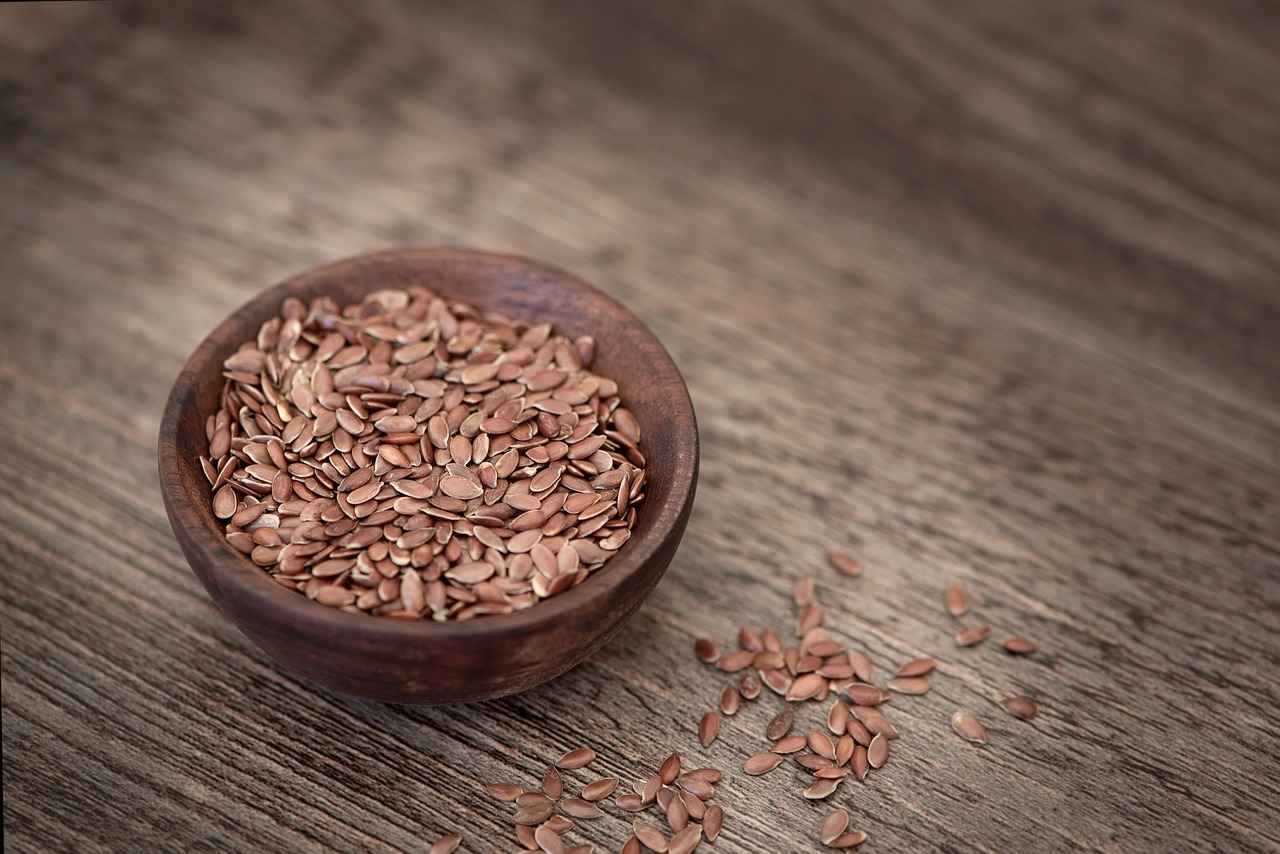
How to Incorporate Chia Seeds into Your Diet?
Incorporating chia seeds into your diet can be both easy and enjoyable, allowing you to reap their numerous health benefits. These tiny seeds are not only packed with nutrients but also versatile enough to enhance various dishes. Here are some practical tips and creative recipe ideas to seamlessly add chia seeds to your daily meals.
- Start Your Day with Chia in Breakfast: Mix chia seeds into your morning oatmeal or yogurt. They can add a delightful crunch and boost the fiber content. For a quick breakfast, combine chia seeds with almond milk, a sweetener, and your favorite fruits to create a nutritious chia pudding.
- Blend Them into Smoothies: Chia seeds can easily be incorporated into smoothies. Just a tablespoon can enhance the texture and nutritional profile of your favorite blend. For instance, combine spinach, banana, almond milk, and chia seeds for a refreshing and filling smoothie.
- Sprinkle on Salads: Adding chia seeds to salads not only provides a nice crunch but also increases the meal’s nutritional value. Simply sprinkle a tablespoon over your greens, along with other toppings like nuts and seeds, for a satisfying crunch.
- Use as a Thickening Agent: Chia seeds can absorb liquid and form a gel-like consistency. This property makes them perfect for thickening soups or sauces. Just mix them in while cooking and let them absorb the flavors.
- Bake with Chia Seeds: Chia seeds can be included in baked goods like muffins, bread, or pancakes. Substitute a portion of flour with ground chia seeds or add whole seeds to the batter for added texture and nutrition.
Here are some easy-to-follow recipes that highlight the versatility of chia seeds:
1. Chia Pudding:- 1/4 cup chia seeds- 1 cup almond milk (or any milk of choice)- 1-2 tablespoons honey or maple syrup- Fresh fruits and nuts for toppingInstructions:1. In a bowl, mix chia seeds, almond milk, and sweetener.2. Stir well and let sit for 15 minutes, then stir again.3. Refrigerate for at least 2 hours or overnight.4. Serve with your favorite toppings.2. Chia Energy Bars:- 1 cup oats- 1/4 cup chia seeds- 1/2 cup nut butter- 1/4 cup honey- Optional: dried fruits or chocolate chipsInstructions:1. Mix all ingredients in a bowl until combined.2. Press the mixture into a lined baking dish.3. Refrigerate for 1 hour, then cut into bars.
Chia seeds can be a fantastic addition to your baking repertoire. Here’s how:
- Egg Substitute: Use chia seeds as a vegan egg replacement. Mix 1 tablespoon of chia seeds with 2.5 tablespoons of water, let it sit for 15 minutes until it becomes gel-like, and use it in recipes calling for eggs.
- Boost Nutritional Value: Add chia seeds to your pancake or waffle batter for a nutritious twist. They will add fiber and omega-3 fatty acids without altering the flavor significantly.
By incorporating chia seeds into your meals, you can enjoy their health benefits while enhancing the flavor and texture of your dishes. With these tips and recipes, adding chia seeds to your diet can be a simple and delicious endeavor.
What Are Some Simple Chia Seed Recipes?
Chia seeds are not only nutritious but also incredibly versatile, making them a fantastic ingredient to include in your daily meals. In this section, we will explore a variety of simple chia seed recipes that are easy to prepare and delicious to eat. From breakfast to snacks, these recipes will help you incorporate chia seeds into your diet effortlessly.
Chia seeds are packed with nutrients, including omega-3 fatty acids, fiber, and protein. They are an excellent addition to your meals, offering numerous health benefits while enhancing the flavor and texture of your dishes. Here are some easy recipes to get you started:
Chia pudding is a popular choice for breakfast or a snack. It’s simple to make and can be customized with your favorite flavors and toppings.
- Ingredients:
- 1/4 cup chia seeds
- 1 cup almond milk (or any milk of your choice)
- 1 tablespoon honey or maple syrup
- 1/2 teaspoon vanilla extract
- Fresh fruits and nuts for topping
- Instructions:
- In a mixing bowl, combine chia seeds, almond milk, honey, and vanilla extract.
- Stir well and let it sit for about 5 minutes.
- Stir again to prevent clumping, then cover and refrigerate for at least 2 hours or overnight.
- Before serving, top with your choice of fresh fruits and nuts.
These homemade energy bars are perfect for a quick snack or pre-workout boost. Packed with nutrients, they are both satisfying and healthy.
- Ingredients:
- 1 cup rolled oats
- 1/2 cup nut butter (like almond or peanut butter)
- 1/4 cup honey or agave syrup
- 1/4 cup chia seeds
- 1/4 cup dried fruits (like cranberries or raisins)
- Instructions:
- Preheat your oven to 350°F (175°C) and line an 8×8 inch baking dish with parchment paper.
- In a bowl, mix together the rolled oats, nut butter, honey, chia seeds, and dried fruits.
- Press the mixture firmly into the prepared baking dish.
- Bake for about 15-20 minutes or until golden brown.
- Allow to cool before cutting into bars.
A chia seed smoothie is a quick and nutritious option for breakfast or a post-workout snack. It’s refreshing and can be made in just a few minutes.
- Ingredients:
- 1 banana
- 1 cup spinach (optional)
- 1 tablespoon chia seeds
- 1 cup coconut water or milk
- Ice cubes (optional)
- Instructions:
- Combine all ingredients in a blender.
- Blend until smooth, adding ice cubes for a cooler drink.
- Pour into a glass and enjoy!
These recipes showcase the versatility of chia seeds in everyday cooking. By incorporating them into your meals, you can enjoy their numerous health benefits while also tantalizing your taste buds. Whether you prefer a creamy pudding, a chewy energy bar, or a refreshing smoothie, chia seeds can easily be adapted to fit your culinary preferences.
Can Chia Seeds Be Used in Baking?
Chia seeds are not only a nutritional powerhouse but also a versatile ingredient that can be easily incorporated into various baked goods. As more people seek healthier alternatives in their diets, understanding how to use chia seeds in baking can lead to delicious and nutritious outcomes.
What Makes Chia Seeds Ideal for Baking?
Chia seeds are rich in fiber, protein, and essential fatty acids, making them an excellent addition to baked goods. Their ability to absorb liquid—up to 10-12 times their weight—allows them to create a gel-like consistency. This property can enhance the texture of baked items, providing moisture and a satisfying chewiness.
How to Substitute Chia Seeds in Traditional Recipes?
- Egg Replacement: For those following a vegan diet or looking to reduce cholesterol, chia seeds can replace eggs in baking. To substitute one egg, mix 1 tablespoon of chia seeds with 2.5 tablespoons of water and let it sit for about 15 minutes until it forms a gel.
- Flour Addition: You can add ground chia seeds to flour mixtures. For every cup of flour, consider adding 1-2 tablespoons of ground chia seeds to increase fiber content and provide a nutty flavor.
- Moisture Enhancer: When baking bread or muffins, incorporating chia seeds can help retain moisture. This is particularly beneficial in recipes that may dry out during baking.
What Are Some Popular Recipes Using Chia Seeds?
Several recipes can benefit from the addition of chia seeds:
- Chia Seed Muffins: These muffins can be made by adding chia seeds directly to the batter, enhancing both nutrition and texture.
- Chia Bread: Incorporating chia seeds into bread dough not only adds health benefits but also creates a delightful crunch.
- Energy Bars: Homemade energy bars can be made with oats, nuts, and chia seeds, providing a healthy snack option.
Are There Any Considerations When Using Chia Seeds in Baking?
While chia seeds offer numerous benefits, there are a few considerations:
- Texture: Depending on the amount used, chia seeds can alter the texture of the final product. It’s essential to experiment to find the right balance.
- Flavor: Chia seeds have a mild, nutty flavor that generally blends well with other ingredients. However, in some recipes, it may be necessary to adjust other flavors to ensure a harmonious taste.
- Hydration: Since chia seeds absorb a significant amount of liquid, it may be necessary to adjust the liquid content in recipes to prevent dryness.
How to Store Chia Seeds for Baking?
To maintain the freshness and nutritional value of chia seeds, store them in a cool, dry place, preferably in an airtight container. Refrigeration can also prolong their shelf life, ensuring that they remain a healthy ingredient for your baking needs.
In conclusion, incorporating chia seeds into your baking not only enhances the nutritional profile of your favorite recipes but also adds unique textures and flavors. With their versatility, chia seeds can be a game-changer in the kitchen, making it easier to create healthier versions of traditional baked goods.

Potential Drawbacks of Chia Seeds
Chia seeds are often hailed as a superfood, but like any food, they come with their own set of potential drawbacks. Understanding these issues is crucial for anyone considering adding chia seeds to their diet. This section delves into the , particularly focusing on digestive concerns and other considerations based on expert insights.
One of the most commonly reported issues with chia seeds is digestive discomfort. For some individuals, consuming chia seeds can lead to bloating, gas, or even constipation. This is primarily due to their high fiber content. While fiber is essential for digestive health, an abrupt increase in fiber intake can overwhelm the digestive system, especially if one is not accustomed to it.
Experts recommend gradually introducing chia seeds into your diet. Starting with a small amount, such as one teaspoon, and slowly increasing the quantity can help your digestive system adjust. Additionally, it’s important to drink plenty of water when consuming chia seeds, as they absorb liquid and expand in the stomach, which can exacerbate digestive issues if not enough fluid is consumed.
While chia seeds are generally safe for most people, there is a risk of allergic reactions in some individuals. Symptoms may include skin rashes, itching, or gastrointestinal disturbances. If you have a history of allergies to other seeds or nuts, it may be wise to consult with a healthcare professional before incorporating chia seeds into your diet.
Chia seeds can also interact with certain medications, particularly those related to blood pressure and blood sugar control. Their high omega-3 fatty acid content can have a blood-thinning effect, which may enhance the effects of anticoagulant medications. If you are on medication, it’s advisable to consult your doctor before making chia seeds a regular part of your diet.
While chia seeds are nutrient-dense, they are also calorically rich. A typical serving of chia seeds (about two tablespoons) contains around 140 calories. For those monitoring their caloric intake, it’s important to consume chia seeds in moderation. Incorporating them into meals should be balanced with other food choices to maintain a healthy diet.
- Start Slow: Begin with a small quantity to gauge your body’s response.
- Stay Hydrated: Always drink plenty of water when consuming chia seeds.
- Mix with Other Foods: Combine chia seeds with yogurt, smoothies, or oatmeal to help with digestion.
- Consult a Professional: If you have health concerns or are on medication, speak to a healthcare provider.
In summary, while chia seeds offer numerous health benefits, being aware of their potential drawbacks is essential for making informed dietary choices. By understanding how to incorporate them responsibly, you can enjoy their nutritional advantages while minimizing any adverse effects.
Are There Any Allergies Associated with Chia Seeds?
Chia seeds have gained immense popularity for their health benefits and versatility in various diets. However, as with many foods, some individuals may experience adverse reactions when consuming them. Understanding the potential for allergic reactions is crucial for anyone considering adding chia seeds to their diet.
Symptoms of Chia Seed Allergies
Although chia seeds are generally regarded as safe, certain individuals may experience allergic reactions. Common symptoms associated with chia seed allergies include:
- Skin Reactions: These may manifest as rashes, hives, or itching, often indicating an allergic response.
- Gastrointestinal Issues: Symptoms such as nausea, vomiting, or diarrhea can occur shortly after consumption.
- Respiratory Problems: In rare cases, individuals may experience difficulty breathing, wheezing, or nasal congestion.
If you notice any of these symptoms after consuming chia seeds, it is advisable to stop consumption immediately and consult a healthcare professional for further evaluation.
Who is at Risk?
Individuals with a history of allergies to other seeds, such as flaxseeds or sesame seeds, may be at a higher risk for developing an allergy to chia seeds. Additionally, those with autoimmune disorders or sensitivities to certain foods should exercise caution when introducing chia seeds into their diets.
Recommendations for Individuals with Sensitivities
For those who suspect they may have a sensitivity or allergy to chia seeds, consider the following recommendations:
- Consult a Healthcare Professional: Prior to introducing chia seeds into your diet, especially if you have a history of food allergies.
- Start with Small Amounts: If you decide to try chia seeds, begin with a small quantity to monitor for any adverse reactions.
- Consider Alternatives: If you experience any allergic symptoms, explore alternative sources of omega-3 fatty acids and fiber, such as flaxseeds or hemp seeds.
Conclusion
In summary, while chia seeds are a nutritious addition to many diets, it is essential to be aware of the potential for allergic reactions. By understanding the symptoms and taking precautions, individuals can safely enjoy the benefits of chia seeds without compromising their health.
How to Store Chia Seeds Properly?
Proper storage is essential to maintain the freshness and nutritional value of chia seeds. These tiny, nutrient-packed seeds can lose their beneficial properties if not stored correctly. Here are some effective guidelines to help you prolong the shelf life of your chia seeds.
Chia seeds are rich in omega-3 fatty acids, fiber, and various vitamins and minerals. However, exposure to air, light, and moisture can lead to rancidity and nutrient degradation. Therefore, understanding how to store them properly is crucial for maintaining their quality.
- Keep Them in an Airtight Container: Use a glass jar or a plastic container with a tight seal. This prevents air from entering and keeps moisture out.
- Store in a Cool, Dark Place: Chia seeds should be kept away from direct sunlight and heat sources. A pantry or cupboard is ideal.
- Refrigeration for Extended Freshness: For long-term storage, consider placing chia seeds in the refrigerator. This can significantly extend their shelf life.
- Avoid Bulk Purchases Without Proper Planning: If you buy in bulk, ensure you can consume them within a reasonable timeframe. Otherwise, opt for smaller packages.
When stored correctly, chia seeds can last for up to two years in a cool, dry place. If kept in the refrigerator, they may maintain their quality even longer. Always check for any signs of spoilage, such as an off smell or discoloration, before use.
- Unpleasant Odor: Fresh chia seeds have a neutral smell. If they emit a rancid or off-putting odor, it’s time to discard them.
- Color Changes: Chia seeds should have a consistent color. Any discoloration may indicate spoilage.
- Texture Changes: If the seeds feel sticky or clump together, moisture has likely compromised their quality.
Yes, freezing chia seeds is a viable option for long-term storage. Just ensure they are in a sealed, airtight container to prevent freezer burn. When you’re ready to use them, simply take out the desired amount and let them thaw at room temperature.
In summary, proper storage of chia seeds is vital for preserving their freshness and nutritional benefits. By following these guidelines, you can enjoy the health benefits of chia seeds for an extended period. Remember to check for signs of spoilage regularly to ensure you’re consuming the best quality seeds.

Where to Buy Costco Chia Seeds?
When it comes to purchasing chia seeds, Costco stands out as a popular choice among health-conscious consumers. With the convenience of both in-store and online shopping, finding these nutrient-packed seeds has never been easier. This section will explore the various purchasing options available at Costco and provide essential tips for ensuring you get the best quality chia seeds.
Costco stores typically carry a selection of chia seeds in their health food aisle. Shoppers can expect to find bulk packages, which not only offer savings but also allow for long-term usage. When buying in-store, it’s advisable to check the expiration date on the packaging to ensure freshness. Additionally, inspecting the packaging for any signs of damage or moisture can help maintain the quality of the seeds.
For those who prefer the convenience of shopping from home, Costco’s website provides an easy way to purchase chia seeds online. Customers can browse through various brands and sizes, often with the added benefit of home delivery. When ordering online, it’s crucial to read customer reviews and product descriptions to ensure you are selecting a high-quality option. Furthermore, check for any shipping fees that may apply, as these can affect the overall cost.
- Look for Organic Options: Organic chia seeds are often free from pesticides and chemicals, making them a healthier choice.
- Check for Certifications: Look for certifications such as Non-GMO or USDA Organic to ensure quality.
- Consider Packaging: Choose seeds that are packaged in airtight containers to maintain freshness.
- Buy in Bulk: Purchasing larger quantities can save money and reduce the frequency of shopping trips.
Costco is known for its competitive pricing, and chia seeds are no exception. Prices may vary depending on the brand and size of the package, but buying in bulk typically results in significant savings compared to smaller retail outlets. It’s worth comparing prices per ounce to ensure you are getting the best deal. Additionally, keeping an eye out for seasonal promotions or discounts can further enhance your savings.
Before making a purchase, consider checking customer reviews on Costco’s website or other platforms. Feedback from other consumers can provide valuable insights into the quality and taste of the chia seeds. Look for comments regarding freshness, texture, and overall satisfaction to help inform your decision.
In conclusion, whether you choose to shop in-store or online, Costco offers a range of options for purchasing chia seeds. By following the tips outlined above, you can ensure that you are selecting high-quality seeds that will enhance your diet and health. Happy shopping!
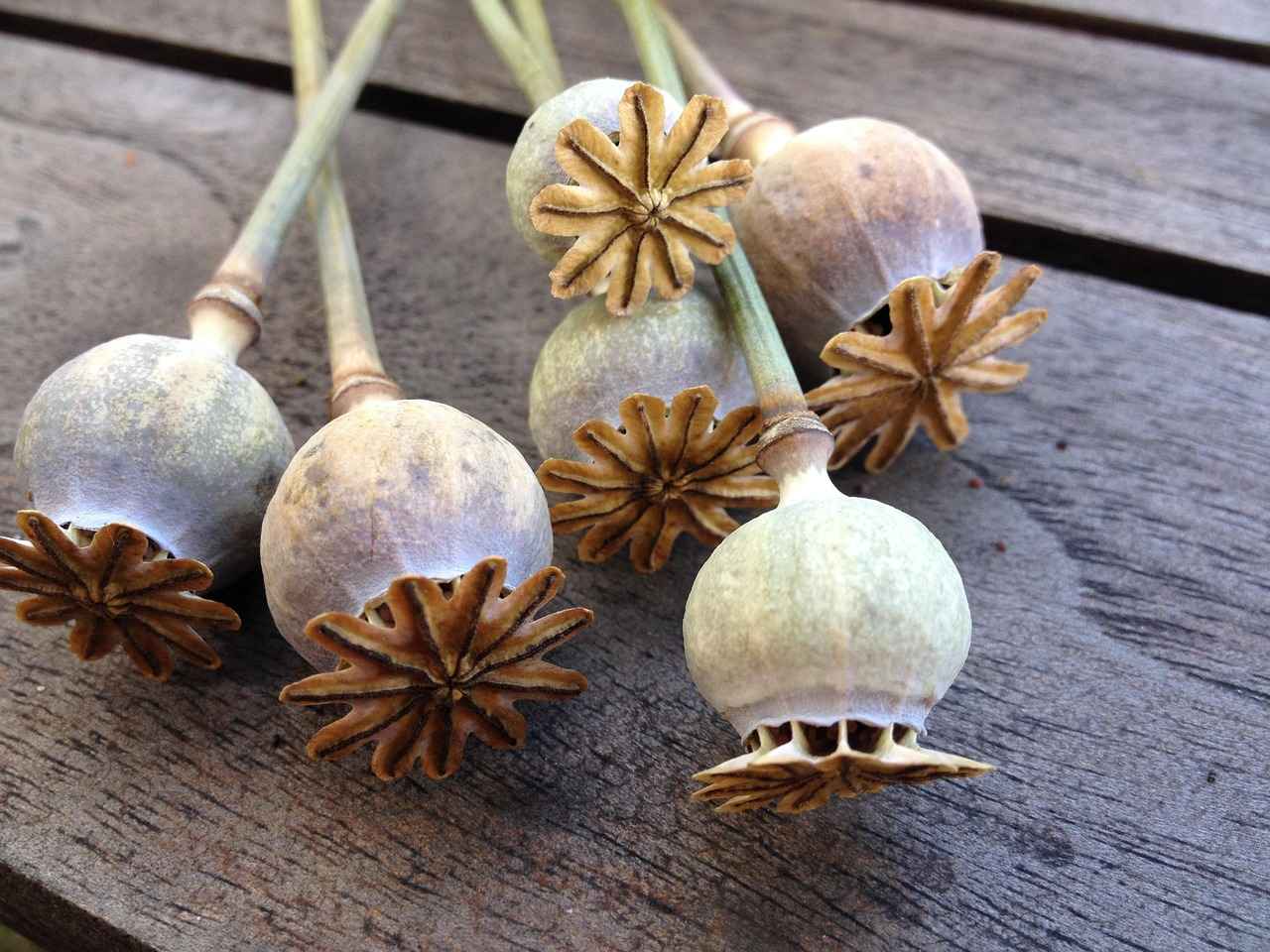
Final Thoughts on Costco Chia Seeds
In the quest for healthier dietary choices, Costco chia seeds have emerged as a popular option among health-conscious consumers. This section aims to encapsulate the essential points discussed throughout the article, providing readers with a clear understanding of whether these tiny seeds merit a place in their daily nutrition.
Chia seeds, derived from the Salvia hispanica plant, are celebrated for their impressive nutritional profile. They are rich in omega-3 fatty acids, fiber, and protein, making them a valuable addition to any diet. The bulk purchasing options available at Costco not only offer significant savings but also ensure that consumers receive high-quality products.
One of the standout benefits of chia seeds is their potential to support digestive health. The high fiber content aids in maintaining regularity, which is crucial for overall well-being. For those looking to manage their weight, chia seeds can promote a feeling of fullness, thus assisting in appetite control. Numerous studies support these claims, highlighting how these seeds can be an effective component of weight management strategies.
Incorporating chia seeds into your meals is both simple and versatile. From smoothies to salads, the options are endless. The article provides practical tips and recipes, such as chia pudding and energy bars, that showcase the seeds’ adaptability in everyday cooking. Additionally, they can be seamlessly integrated into baking, enhancing both texture and nutritional value.
However, it’s essential to consider potential drawbacks. While chia seeds are generally safe, some individuals may experience digestive discomfort or allergic reactions. Understanding these aspects is crucial for making informed dietary choices. Proper storage is also vital to maintain the freshness of chia seeds, ensuring that you reap their full benefits.
When it comes to purchasing, Costco makes it easy to find chia seeds both in-store and online. This accessibility, combined with the assurance of quality, makes Costco a convenient choice for consumers. As you weigh the benefits and considerations outlined, it becomes clear that incorporating chia seeds into your diet can be a beneficial decision.
In summary, the exploration of Costco chia seeds reveals their numerous health benefits, ease of incorporation into various meals, and the convenience of purchasing in bulk. By considering the information presented, you can make an informed choice about whether to include these nutrient-dense seeds in your daily nutrition regimen. The final decision rests on your personal health goals and dietary preferences.
Frequently Asked Questions
- What are the main health benefits of chia seeds?
Chia seeds are a powerhouse of nutrients! They’re loaded with omega-3 fatty acids, fiber, and protein, making them great for heart health, digestion, and weight management. Incorporating them into your diet can help you feel full and satisfied.
- How can I include chia seeds in my meals?
Adding chia seeds to your meals is super easy! You can sprinkle them on salads, blend them into smoothies, or even make delicious chia pudding. They absorb liquid and create a gel-like texture, which can enhance various recipes.
- Are there any side effects of consuming chia seeds?
While chia seeds are generally safe, some people may experience digestive discomfort if consumed in large amounts. It’s best to start with a small serving and drink plenty of water to help with digestion.
- Can chia seeds be used in baking?
Absolutely! Chia seeds can be a fantastic addition to baked goods. They can replace eggs in recipes or simply be mixed into dough for added texture and nutrition. Just remember to adjust the liquid content accordingly!
- Where can I buy chia seeds at Costco?
You can find chia seeds in-store at Costco or purchase them online. They often sell them in bulk, which can save you money in the long run!



